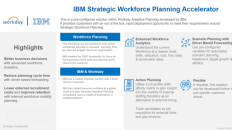Streamlining manufacturing projects is crucial for efficiency and profitability. Manufacturing project management software provides a comprehensive solution for planning, executing, and tracking projects from initiation to completion. This software empowers teams to optimize resource allocation, improve communication, and enhance overall project performance. Imagine a world where project delays are minimized, budgets are met, and quality standards are consistently maintained – that’s the potential of this powerful technology.
This guide delves into the intricacies of manufacturing project management software, exploring its core features, benefits, and integrations. From detailed planning and scheduling to seamless communication and comprehensive reporting, we’ll cover everything you need to know to choose the right software for your specific manufacturing environment. We’ll also examine implementation strategies, evaluation criteria, and real-world case studies to highlight the tangible impact of this software on various manufacturing sectors.
Introduction to Manufacturing Project Management Software
Manufacturing project management software is a specialized tool designed to streamline and optimize various stages of manufacturing projects. It provides a centralized platform for managing tasks, resources, and communication, ultimately enhancing project efficiency and profitability.
Definition of Manufacturing Project Management Software
Manufacturing project management software is a suite of applications specifically tailored for managing complex manufacturing projects. It encompasses tools for planning, scheduling, resource allocation, communication, cost control, risk management, and quality assurance. This software is critical for coordinating diverse activities across various departments, from engineering and procurement to production and logistics.
Key Functionalities
Manufacturing project management software typically includes functionalities such as:
- Project Planning and Scheduling: Tools for creating detailed project plans, defining tasks, assigning responsibilities, and establishing realistic timelines.
- Resource Allocation and Management: Modules for tracking and managing resources like personnel, equipment, and materials, ensuring optimal utilization and preventing bottlenecks.
- Communication and Collaboration: Features for facilitating communication and collaboration among project team members, stakeholders, and external partners.
- Cost Control and Tracking: Tools for monitoring project costs against budgets, identifying variances, and proactively managing cost overruns.
- Risk Management: Features to identify, assess, and mitigate potential risks that could impact project timelines or budgets.
- Quality Assurance: Tools for monitoring quality metrics, identifying deviations from standards, and taking corrective actions.
Types of Manufacturing Projects Benefiting from Software
The software can support a wide range of manufacturing projects, including:
- New Product Development: From initial design to final production, the software facilitates efficient management of the entire process.
- Facility Upgrades or Expansions: Complex projects involving multiple stakeholders and intricate timelines can be meticulously managed.
- Equipment Replacements or Acquisitions: Comprehensive planning, procurement, and installation processes are supported.
- Process Improvements: Optimizing existing manufacturing processes, often with the goal of increasing efficiency or reducing costs.
Comparison of Project Management Software Categories
| Category | Pros | Cons |
|---|---|---|
| Cloud-Based | Accessibility, scalability, cost-effectiveness, automatic updates | Internet dependency, security concerns, vendor lock-in |
| On-Premise | Customization, control over data, potential for better security | High upfront costs, limited scalability, maintenance responsibility |
| Open-Source | Customization, cost-effectiveness, community support | Requires in-house expertise, potential for security vulnerabilities, limited vendor support |
Core Features and Benefits
Manufacturing project management software significantly enhances project efficiency by streamlining various processes.
Streamlining Project Planning and Scheduling
The software empowers project managers to create detailed project plans, define tasks, assign responsibilities, and establish realistic timelines. This ensures clarity and alignment across all project stakeholders, reducing potential delays and misunderstandings.
Resource Allocation and Management
The software facilitates optimal resource allocation by tracking and managing personnel, equipment, and materials. This proactive approach prevents bottlenecks and ensures resources are utilized efficiently.
Communication and Collaboration
Effective communication is crucial for successful manufacturing projects. The software provides platforms for real-time updates, file sharing, and collaborative task management, fostering a streamlined communication flow among team members and stakeholders.
Dashboards and Reporting Tools
Dashboards and reporting tools are critical for monitoring project progress and performance. Key metrics can be visualized, enabling timely identification of potential issues and proactive intervention.
Software Features for Cost Control, Risk Management, and Quality Assurance

| Feature | Cost Control | Risk Management | Quality Assurance |
|---|---|---|---|
| Tracking | Cost variance reports, budget comparison | Risk assessment matrices, mitigation plans | Defect tracking, quality metrics monitoring |
| Forecasting | Projected cost analysis, budget adjustments | Probability of risk occurrence | Quality control procedures, non-conformance reports |
| Reporting | Detailed cost breakdowns, trend analysis | Risk register, risk response plans | Quality audit reports, defect prevention strategies |
Integration with Other Systems
Effective integration with other systems is critical for seamless information flow and improved efficiency.
Integration with ERP Systems
Integration with Enterprise Resource Planning (ERP) systems is vital for a holistic view of the manufacturing operation. This integration allows for real-time data exchange, enabling better coordination and decision-making.
Integration with Supply Chain Management (SCM) Systems
Integrating with Supply Chain Management (SCM) systems ensures that project timelines are aligned with material availability and delivery schedules.
Integration with Manufacturing-Specific Tools
The software can integrate with Computer-Aided Design (CAD) and Computer-Aided Manufacturing (CAM) tools to provide a unified platform for managing the entire product lifecycle.
Seamless Workflow Example
A manufacturing project manager initiates a new product development project in the project management software. The software automatically updates the ERP system with the project’s materials requirements. The ERP system then triggers procurement requests to the supply chain management system, ensuring timely material delivery.
Integration Methods and Compatibility
| Integration Method | Software Compatibility |
|---|---|
| API Integration | Most modern software |
| Custom Integrations | High degree of customization |
| Pre-built Connectors | Limited to supported systems |



